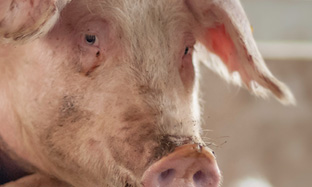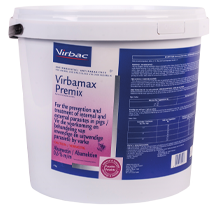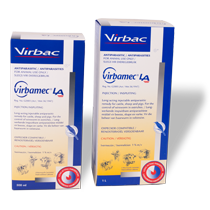
How The Two Most Common Pig Endoparasites Infect Swine Stock
Pig endoparasites, though not endemic nor necessarily fatal, affect the health and general condition of pig herds. Left unmanaged, pig endoparasites cause financial losses for the farmer. Infected pigs display poor weight gain, need more food to sustain their weight, and may be more vulnerable to diseases. The carcasses and the edible offal may be downgraded or destroyed, causing the farmer to lose money.
Pig endoparasites can be controlled with deworming treatments, helping to prevent the suffering of the animals and reducing financial losses for the farmer. Two of the prominent pig endoparasites, which can be treated and eliminated with our products, are briefly introduced below.
Roundworms are endoparasites that affect both the boar and sow. These endoparasites affect pigs in all age groups, but are especially devastating amongst younger pigs and nursing sows. Poor nutrition and stress due to transportation, weather changes, and changes in their environment leave pigs more vulnerable to roundworm infection.
The female roundworms lay eggs, of which some contain larvae. The eggs require a moist and warm environment for hatching. Pigs ingest the eggs and larvae when they consume infected earthworms and insects such as dung beetles, or infected faeces. Infection is also possible through skin penetration. Suckling piglets can be infected through the colostrum of the sow. It is furthermore important to disinfect the pigs’ environment on a regular basis, as the eggs of endoparasites such as the Trichurissius and Ascaris suum can stick to the shoes of workers and walls of the enclosures.
Signs of infestation include poor feed conversion, low weight gain ratio, loss of appetite, blood loss, respiratory problems, reproductive failure, poor milk yield, and vulnerability to secondary infections. View our product range for treatment agents such as the feed premix and the injectable roundworm treatment for pigs.
Another of the prominent endoparasites in pigs is the tapeworm. Pigs consume tapeworm-contaminated faeces. The eggs of the tapeworm hatch in the intestines of pigs, from where the hatched larvae move to the lungs, liver, and muscles of the animals. Cysts containing fluids form in the muscles, liver, and lungs. Pig-specific tapeworms are ingested when pigs eat infected dung beetles. When the infestations are severe, gut lesions may be noticed.
Prevent financial losses due to higher feed requirements and poor-quality meat, as well as complete loss of carcasses. Follow a protocol for treatment, prevention, and control of pig endoparasites.
View our range of products and get in touch if you are unsure which treatment options to choose.



